cloud
Latest

Microsoft and Bridgestone launch real-time tire damage system
A new system can detect tire damage in real time.
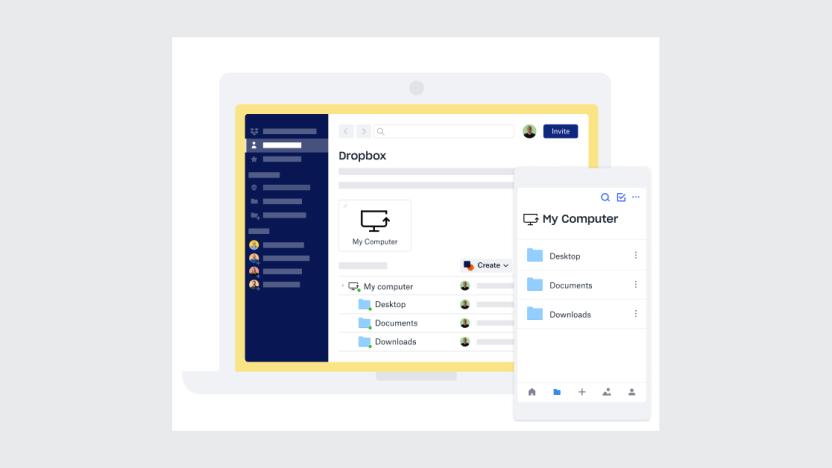
Dropbox can now automatically backup system folders
Dropbox users can now set automatic cloud backups for PC and Mac folders.

Steam improves support for game streaming through GeForce Now
Steam's Cloud Play service is back on the agenda.
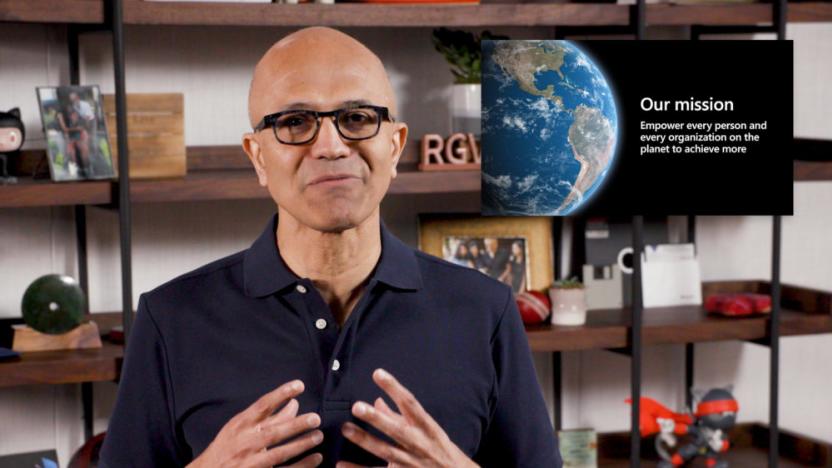
Microsoft flexed its cloud and AI muscles at Build 2020
The company’s investments in cloud and machine learning are starting to deliver real products. It’s a bold proposition, but one with the potential to propel Microsoft’s productivity software ahead of Google’s. These components can be inserted into emails or even a chat app like Microsoft’s Teams.

Amazon opens its first cloud data center in Africa
Internet connectivity in South Africa is set to improve with the arrival of Amazon's cloud data centers.

Samsung no longer syncs keyboard data between phones
Samsung Cloud no longer syncs your phone's keyboard data, making device switches that much harder.

IBM shares AI tools to better understand and treat COVID-19
It has released a series of new tools to aggregate data, help researchers explore potential therapies, advance the study of newly sequenced SARS-CoV-2 genomes and make the latest info available to healthcare professionals. Its AI deep search tool is ingesting data from the White House, a coalition of research groups and licensed databases from the DrugBank, Clinicaltrials.gov and GenBank. The cloud-based research tool is a repository of genes, proteins and other molecules from sequenced viral and bacterial organisms, and it’s meant to help researchers identify molecular targets necessary for drug design, test development and treatment.
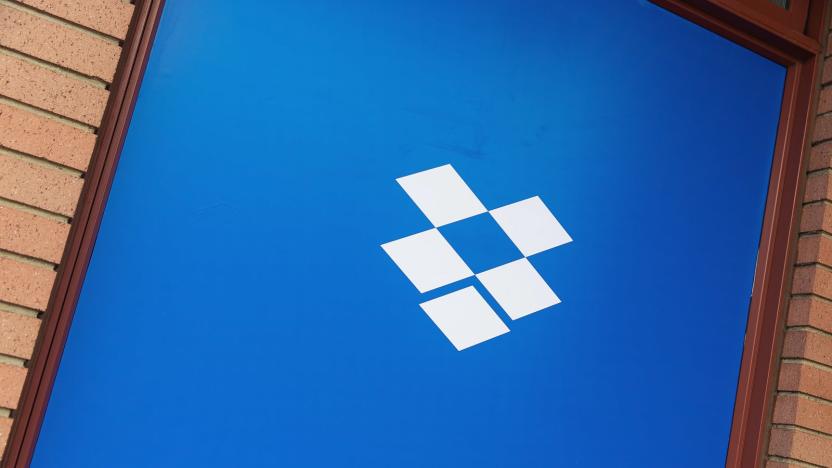
Dropbox beta for Mac can finally sync your desktop
Dropbox has been less alluring to some Mac users than iCloud in part because of its limited syncing. Where Apple's service can sync your desktop and Documents folder, you've had to be content with syncing a special folder with Dropbox's service. You might have reason to give it a second look in the near future, though. The 9to5Mac team has discovered that the latest Dropbox beta for Mac (sadly, not easy to grab) has the option of syncing your desktop, Documents and Downloads.

Shadow’s cloud-based gaming service now starts at $12 per month
Shadow made a big splash when it launched its cloud-based PC gaming service back in 2018. For a monthly fee, the service brings the power of PC gaming to almost any device – from smartphone to laptop -- by streaming gameplay from super powerful servers. It's a smart idea -- who wouldn't want the performance of a $2,000 gaming rig without having to cough up for the gear? But at $35-$50 a month, the service was a little too pricey for some -- especially when the likes of GeForce Now and xCloud were so much cheaper. Now, though, Shadow has introduced a new subscription model designed to make its offering accessible to more gamers.

Google's new terms of service will (hopefully) be easier to read
Terms of service still tend to read like legal alphabet soup, but Google thinks it can do better. It's notifying users of a TOS change on March 31st that, among other things, should remove some of the mystery. The internet giant said its new terms are still written in legalese, but that the company has "done [its] best" to make them easier to grasp, including definitions and links. Google is promising better overall communication, too, clarifying just when it will change services or limit access. It aims to send more notifications if changes affect service.

Judge grants Amazon’s request to put Microsoft’s Pentagon contract on hold
For months, Amazon has been making a fuss over the Pentagon's decision to award Microsoft the $10 billion Joint Enterprise Defense Infrastructure (JEDI) contract. The company has said that President Trump's "personal vendetta" cost it the contract, and it has filed a lawsuit to challenge the decision. Now, a judge has ordered a temporary block on the JEDI contract in response to the suit, CNBC reports.

BlackBerry and Amazon team up to make connected cars more secure
The more connected cars get, the more we'll need to depend on high-quality security -- especially when dealing with the cloud. BlackBerry, which is more into cars than smartphones these days, is addressing that issue with a new connected vehicle software platform based on its QNX operating system. By tapping Internet of Things tech from Amazon Web Services, it'll let car manufactures build AI apps and access vehicle sensor data for connected, electric and autonomous cars.

Walmart's Amazon attack plan could put 5G antennas, servers in stores
Now that Walmart and others are chasing Amazon's convenience with shipping that's nearly instantaneous, deep discounts for third parties and convenient in-store pickup of online orders, what's next? According to a report in the Wall Street Journal, Walmart might use its stores to go after AWS. Yes, you read that correctly. Apparently CEO Doug McMillon's pitch is that the large footprint and locations of Walmart's superstores gives it an advantage in "edge computing," where servers are physically closer to where the data is needed. That could be crucial for services like autonomous cars and drones that need information with less lag, or maybe even for something like cloud gaming. The plan doesn't sound like it's a certain thing, but it is surprising, and strikes Amazon in the heart of a business that brought in $25 billion last year. Other business opportunities include selling shopper data to digital advertisers. Your phone may not be listening to you, Walmart -- and anyone willing to pay for access -- could track exactly which products you stopped and looked at, or what you typically buy using a credit card. It could also follow Amazon in providing delivery services for other companies, and has reportedly looked into leasing space on its roofs for telecom companies to install 5G antennas. The one thing that apparently isn't included in future plans? Digital video store Vudu, backing an earlier report from The Information that it's up for sale -- if Walmart can find an interested buyer.

The FTC has reportedly opened a probe into Amazon's cloud business
The US Federal Trade Commission is expanding the scope of its Amazon probe to include its cloud business, according to Bloomberg. In addition to looking into the company's e-commerce business, investigators have reportedly started asking the software companies Amazon works with about Web Services' practices to figure out it's been harming competition or violating any antitrust laws.

Amazon offers quantum computing on its AWS servers
Quantum computing is arguably the next major milestone for tech companies, but unless you're the likes of Google or IBM, it's a fairly costly endeavor. But Amazon -- which up until now has been pretty quiet on the quantum front -- has plans to offer a quantum computing service to companies through the internet, thereby eliminating some of the costs and other challenges associated with pursuing the technology.
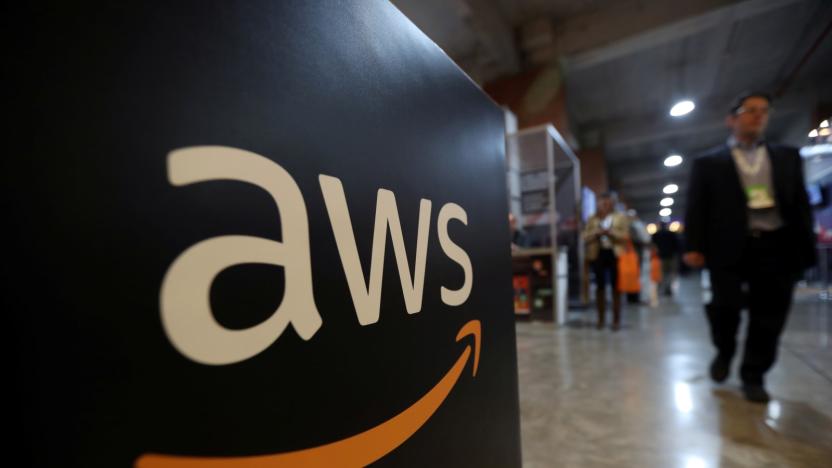
Alexa is coming to low-spec devices like light switches and thermostats
Amazon's Alexa voice assistant has migrated to a lot of devices of late, including eyeglasses, ear buds and microwave ovens. Now, the company has revealed that it will run on devices with as little as 1MB of memory and a cheap Cortex-M processor. That means you can expect to see Alexa on all kinds of relatively dumb devices from lightbulbs to toys.

Amazon sues to challenge Microsoft's $10 billion JEDI contract win
Amazon is acting on its promise to challenge the Pentagon's decision to award Microsoft a key $10 billion cloud computing contract. The internet giant filed a federal lawsuit on November 22nd to contest the Defense Department's choice for the coveted Joint Enterprise Defense Infrastructure (JEDI) contract. Amazon didn't explain the reasoning behind the suit, although it previously claimed that the decision process included "unmistakable bias" and suggested there was "political influence." In other words, President Trump's animosity toward Amazon allegedly pushed the Pentagon to choose Microsoft instead of the 'rightful' winner.

Google Cloud Print follows Reader and Inbox to the trash heap after 2020
If there's anything Google loves as much as launching interesting new projects (say hello to Stadia and Duplex on the web!), it's killing them off after a few years, and now we have an end date for Google Cloud Print. The service launched in 2010 as a way to make printers more accessible for Chrome OS, but 9to5Google points out a post on the support site that indicates its services are no longer needed. Google correctly notes that it has improved native printer support on Chrome OS, but Cloud Print has been a welcome link from all kinds of devices to the printers we know, love and are endlessly frustrated by when they refuse to work. Its easy link to other services came through in the clutch more than once, but now we're headed back to one-by-one setups and disparate printing apps. If you've come to rely on the service, then you have until the end of 2020 to work out an alternative, because when the lights come on in 2021 -- "devices across all operating systems will no longer be able to print using Google Cloud Print." Cloud Print never even made it out of beta status.
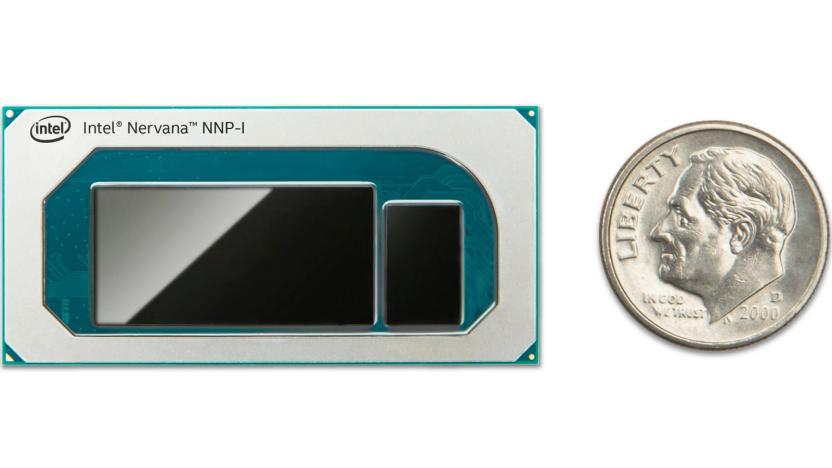
Intel unveils its first chips built for AI in the cloud
Intel is no stranger to AI-oriented chips, but now it's turning its attention to those chips that might be thousands of miles away. The tech firm has introduced two new Nervana Neural Network Processors, the NNP-T1000 (below) and NNP-I1000 (above), that are Intel's first ASICs designed explicitly for AI in the cloud. The NNT-T chip is meant for training AIs in a 'balanced' design that can scale from small computer clusters through to supercomputers, while the NNP-I model handles "intense" inference tasks.

MS Word and PowerPoint can tap into Adobe Creative Cloud libraries
You might not have to scramble to find pictures for your next company presentation. Microsoft Word and PowerPoint now have direct access to Adobe Creative Cloud Libraries that store everything from company logos to font styles. In other words, you don't have to bug a team member just to grab a relevant image, or visit a style guide just to find out if your report is on-brand.






